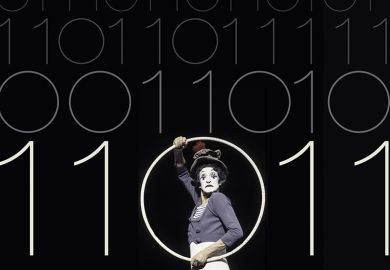Juicy, colourful... full of suffering and misery - full of merriment and joy...", and many more attributes have graced the peculiarities of the Yiddish language. It has never been a majority language in any country or province, and its very existence has generated many explanations.
Dovid Katz tells his story of Yiddish at a time when European Yiddish culture is about to depart living memory and the world of Yiddish literature shrinks. In very few years, we shall no longer hear the testimonies of its last surviving masters; Yiddish scholarly studies, having enjoyed a short renaissance in both the academic and popular spheres during the 1990s, are now in decline again. These dismal trends have spurred re-evaluations from both inside and outside the tradition.
This book is one of them, the story of Yiddish in a nutshell told by an insider - a journey from its prehistory and birth pangs. Katz charts its rise as a vernacular, the language of the Ashkenazi subculture of the Jewish people since that group settled 1,100 years ago in the Germanic lands of Central Europe. He tells how it gained respectability through the late 19th century, documents its journey out of the confinement of the shtetl , its secularisation and ideologisation during the early 20th century, the various stages of language planning until its establishment as a scholarly discipline during the interwar period. Katz concludes his volume with a personal view of the future of Yiddish in the 21st century.
Drawing heavily on his earlier studies of the origins of the Yiddish language, Katz provides a convincing case for the genesis of Yiddish and its ancient roots in Hebrew and Aramaic. He covers the earliest examples of written Yiddish, such as private letters, notes, legends and the popular collections of utterly charming Yiddish fables.
In the age of printing, the significance of Yiddish is revealed as a new European component in Ashkenazi civilisation. We learn of the recommended readings for women, the relationship between Yiddish and Jewish mysticism, and the geographical extent of dialects. Less detailed, but far longer than the other chapters, is the one Katz devotes to Yiddish in the 20th century, when various national movements applied it as a medium for their propaganda and mass political education. This "advocacy" eventually brought Yiddish high-status functions such as quality theatre, poetry and literary criticism. However, these served a dwindling audience, as Yiddish speakers were lost to the surrounding languages.
Language planning followed by stages. A first step was the Czernovitz Language Conference of 1908, which Katz describes as the "ignition" of the language debate between Yiddishists and Hebraists, although in fact this debate had already begun. Extreme Hebraist and Yiddishist viewpoints had already crystallised around the respective ideologies of Zionism and Bundism, which bore the seeds of a bitter language war. By recognising Yiddish as a Jewish national language, the Czernovitz conference established an uneasy ceasefire. Likewise it is fanciful to draw a thread from what Katz calls the Borokhovian branch of Yiddishism, laying the foundations for Yiddish academic studies in Vilna (Vilnius) in 1913, via the foundation of Yivo, the Yidisher Visnshaftlekher Institut (Institute for the Study of Yiddish) in Vilna in 1925, through to the revival of Yiddish as a scholarly discipline in post-communist Europe.
There are different views about who initiated a Yiddish academic tradition, and it is perhaps understandable that they should have been glossed over in a popular book such as this. It is by no means clear that Yivo promoted Vilna to become a world centre of Yiddish academic studies.
However, these criticisms should not detract from the pleasure to be had in this book for its celebration of Yiddish. This well-written book can be recommended to all friends of this playful, magical, powerful language.
Susanne Marten-Finnis is professor of applied linguistics, Portsmouth University.
Words on Fire: The Unfinished Story of Yiddish
Author - Dovid Katz
Publisher - Basic Books
Pages - 430
Price - £16.99
ISBN - 0 465 03728 3
Register to continue
Why register?
- Registration is free and only takes a moment
- Once registered, you can read 3 articles a month
- Sign up for our newsletter
Subscribe
Or subscribe for unlimited access to:
- Unlimited access to news, views, insights & reviews
- Digital editions
- Digital access to THE’s university and college rankings analysis
Already registered or a current subscriber? Login



